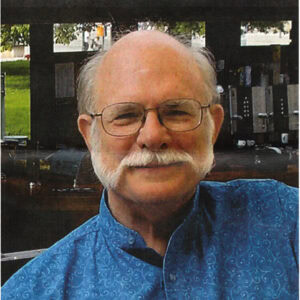Thomas A. Brady Jr., Sather Professor emeritus at the University of California, Berkeley, passed away on March 7, 2025, at his home in Berkeley.

Tom was born on November 23, 1937, in Columbia, Missouri, where his father was professor of ancient history, dean, and vice president of the University of Missouri. Tom graduated from the University of Notre Dame in 1959, then served for three years in the US Navy. He earned a master’s degree at Columbia University in 1962 and a PhD in 1968 at the University of Chicago, where he studied the era of the Protestant Reformation with Hanna Holborn Gray and Hans Baron.
In 1967, he accepted a position at the University of Oregon. During his 23 years in Eugene, which culminated in his occupying an endowed chair, he became known as a superb teacher and scholar, a man of extraordinary intellectual breadth, whose curiosity matched the generosity with which he shared his knowledge. In this era, he also participated in the international revitalization of scholarship on the Reformation in central Europe. This revitalization featured the integration of theology and history, the study of the social, cultural, and political circumstances in which religious beliefs developed. Tom’s first book, Ruling Class, Regime and Reformation at Strasbourg, 1520–1555 (1978), was a spectacular collective biography of Strasbourg’s ruling elites in the era of the Reformation. It deployed neo-Marxist ideas to demonstrate the influence of urban social position on religious inclination. His next book, Turning Swiss: Cities and Empire, 1450–1550 (1985), studied the role of regional diversity, both rural and urban, in guiding the political reception of reform in the Holy Roman Empire and the doctrinal reception of Protestantism in southern Germany. It was awarded the German Studies Association Book Prize in 1987.
By the time he moved to the University of California, Berkeley, in 1990, Tom had become one of the world’s preeminent Reformation scholars. Beyond his formidable published scholarship, his reputation reflected his pivotal place in a growing international network of scholars. He knew everyone. His collaborators included scores of European scholars. Hundreds of reviews, reports, and bibliographical notices from his pen explored every regional corner of central Europe and illuminated every methodological controversy during these exciting days, whether the subject was communalism, confessionalism, or the intersections of social and cultural history.
One virtue of Tom’s move to Berkeley was the greater opportunity to recruit and train a new generation of scholars, dozens of whom now teach in North American universities. Together with fellowships and countless academic honors, two large book projects marked this period as the culmination of his scholarship. The subject of his dissertation and the principal figure in his first book became his biographical subject in Protestant Politics: Jacob Sturm (1489–1553) and the German Reformation (1995). Here Sturm figured as a crucial actor in events that brought not only the failure of a Protestant alternative to the Holy Roman Empire but also the survival of Protestantism in Strasbourg. Tom’s final volume, a masterful capstone to a distinguished career, was German Histories in the Age of Reformations, 1400–1650 (2009). Here he linked early modern and modern German historiography in a reprise of Leopold Ranke’s history of the Protestant Reformation, in which the great historian had located the founding of a German nation-state in 1871 as the culmination of the Reformation. Tom argued that the abiding achievement of the Reformation era lay instead in the long-enduring political framework that it provided for managing central Europe’s complex confessional diversity.
Tom is survived by Katherine Gingrich Brady, his lifelong friend, wife of more than six decades, and, as friends and readers of his books’ dedications know, a scholarly collaborator whose importance to his life cannot be overstated. Whether situated in Eugene, Berkeley, Strasbourg, Tübingen, Munich, or elsewhere, the Brady home was the site of an ongoing scholars’ feast, where guests, colleagues, and students gathered for good company, good food, and intellectual uplift. “Liberty Hall,” as Tom called their home, was a source of joy to them both and to their many, many friends.
Roger Chickering
Georgetown University (emeritus) and University of Oregon
This work is licensed under a Creative Commons Attribution-NonCommercial-NoDerivatives 4.0 International License. Attribution must provide author name, article title, Perspectives on History, date of publication, and a link to this page. This license applies only to the article, not to text or images used here by permission.
